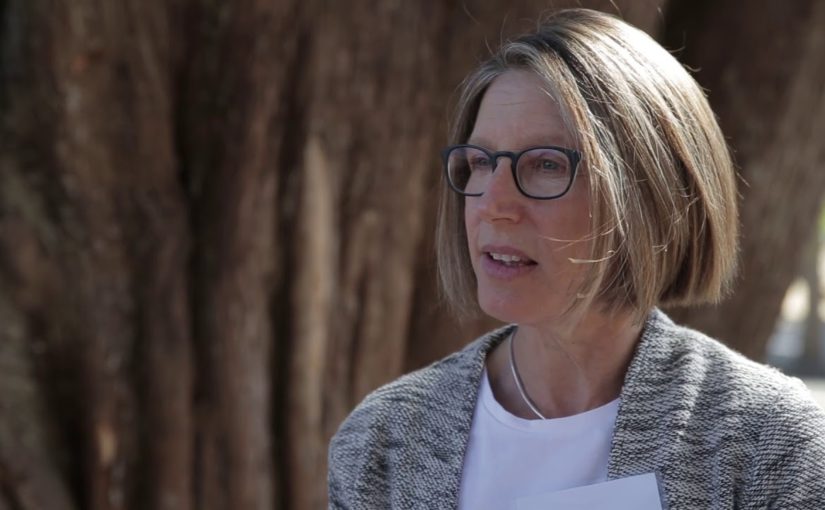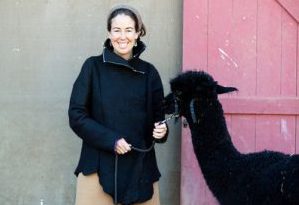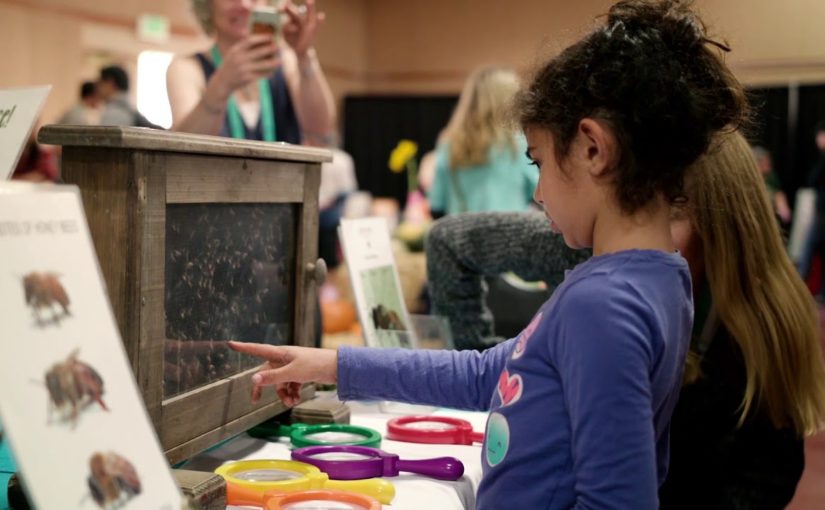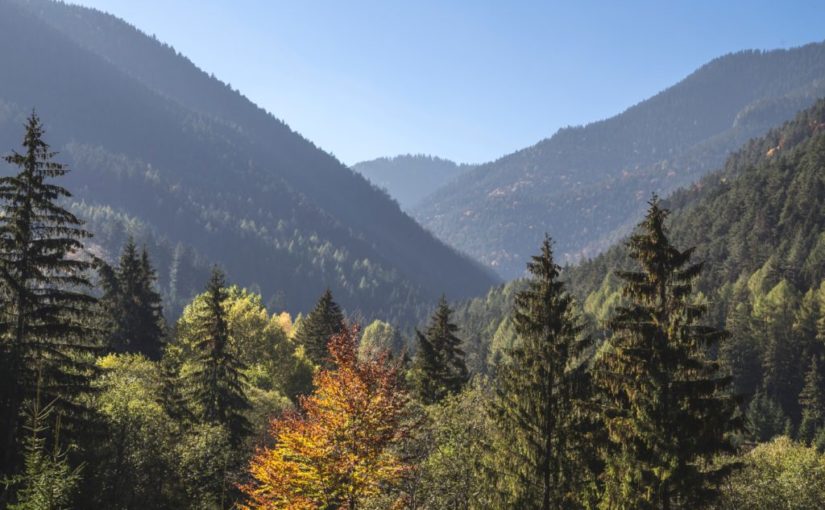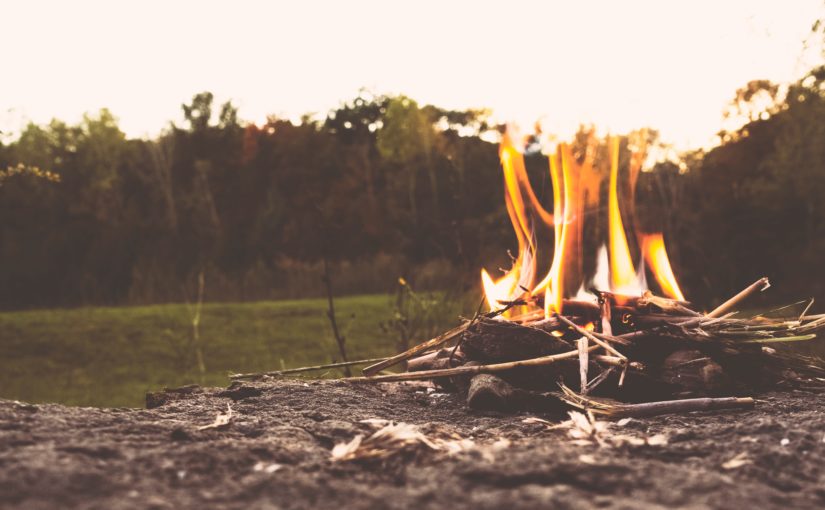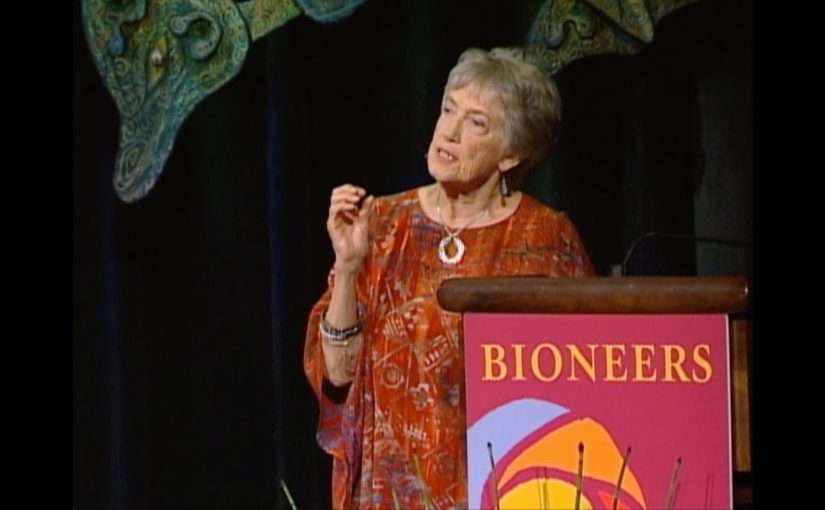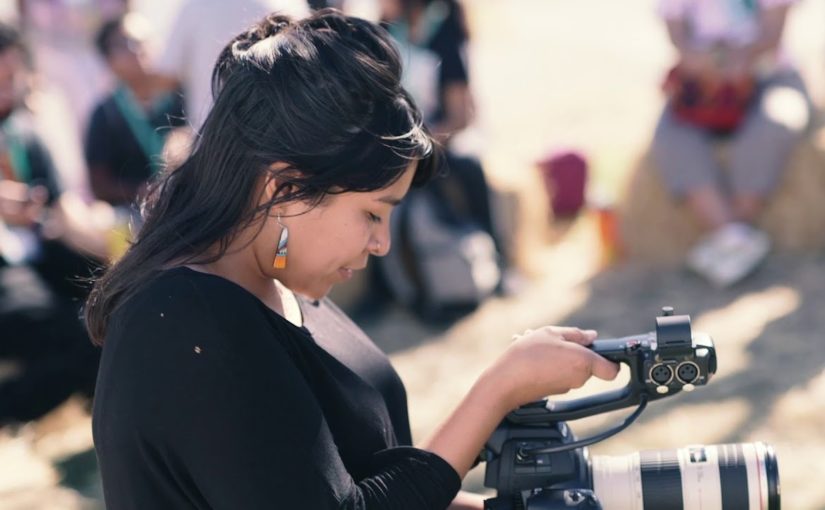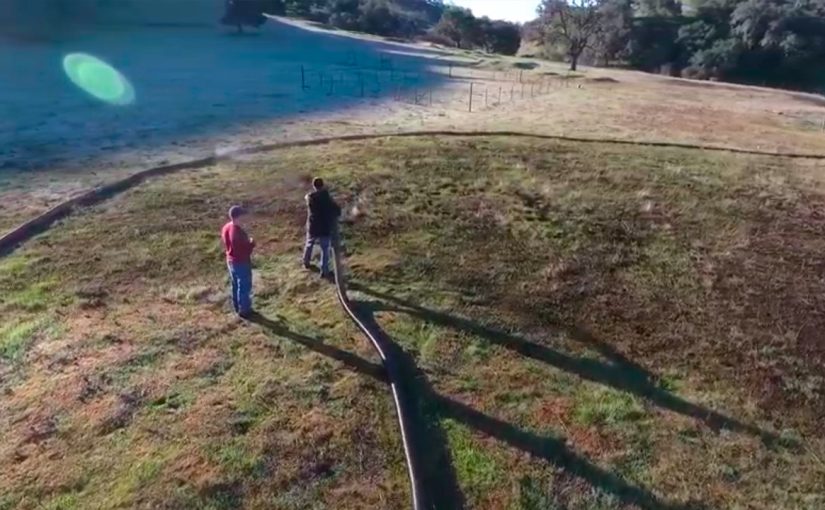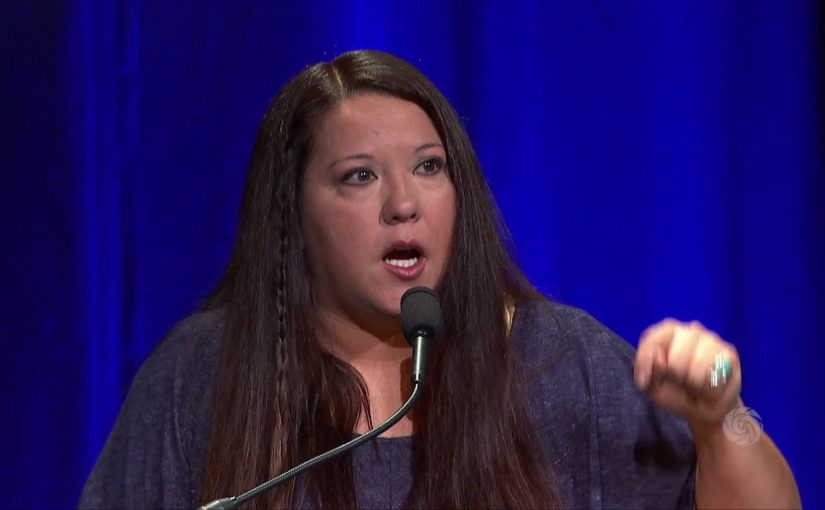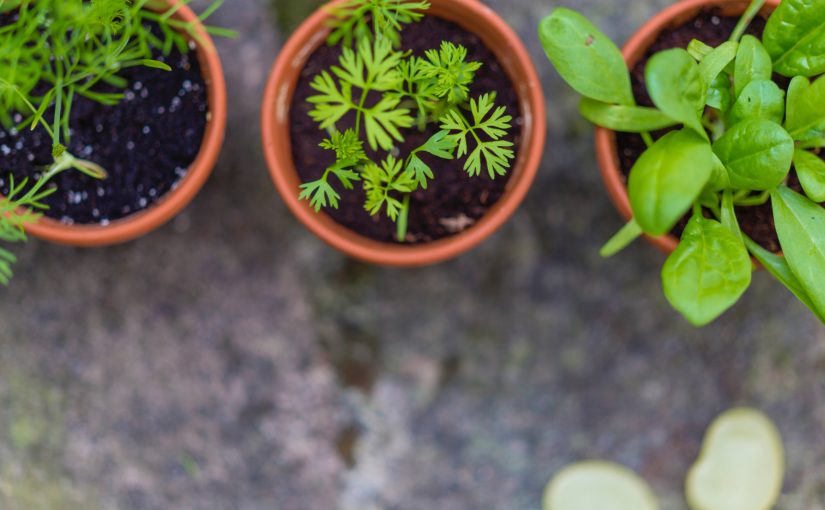First Peoples have long used key sacred plants as powerful healing tools and to communicate with the “mind of nature.” In this truly unique session Bioneers associate producer and editor of Visionary Plant Consciousness J.P. Harpignies and ethnobotanist/artist Kat Harrison hosted deeply experienced practitioners of sacred plant traditions from the International Council of 13 Indigenous Grandmothers, including Mazatec Elder Julieta Casimiro; Maria Alice Campos Freire, a Madrinha in Brazil’s Santo Daime Church; traditional Cheyenne dance leader, sculptress and writer Margaret Behan Red Spider Woman; and Bernadette Rebienot, Omyene healer and master of the lboga Bwiti Rite.
Managing the Soil for Carbon is Good for the Climate – Whendee Silver
Dr. Whendee Silver of UC Berkeley is researching the bio-geochemical effects of climate change and human impacts on the environment, and the potential for mitigating these effects. Dr. Silver is working with the Marin Carbon Project to establish a scientific basis for carbon farming practices that, if implemented globally, could have a significant impact on mitigating climate change.
Explore the Bioneers Carbon Farming series >>
Jayden Lim Conference Preview: Beyond the Headdress
Award-winning young Pomo activist Jayden Lim of the California Indian Museum and Cultural Center’s Tribal Youth Ambassadors program will be delivering a keynote speech Friday, Oct 19 at the 2018 Bioneers Conference. She will illuminate the hidden history of California and how she has had to grapple with stereotypes and historical trauma to find her identity as a Native youth.
Jaydem Lim (Pomo), a high school senior skilled in GIS software, business planning, and Pomo language documentation (and also a DJ since age 11!), serves as a Tribal Youth Ambassador (TYA) for the California Indian Museum and Cultural Center. Jayden spoke at the Obama White House ceremony honoring the TYA program and is currently working to make California switch Columbus Day to Indigenous Peoples Day.
Learn more at conference.bioneers.org
Fibershed: Building Local Economy and Healing the Climate
Rebecca Burgess and the Fibershed project are building a regional economy that connects ranches producing wool with artisan clothing manufactures. Fibershed’s local economy network is based on carbon farming practices that capture atmospheric carbon and store in the soil. Soil carbon supports a regenerative fertility cycle and is the building block for a climate-friendly life-promoting economy.
Learn more at http://www.fibershed.com/
Join us at the 2018 Bioneers Conference
We’re living in a thriller that only reality could write. Breakdown and breakthrough – death and rebirth – creative destruction writ large.
As this year’s Bioneers Conference will exemplify, there’s as much cause for hope as for horror, and the ground truth is that how this story turns out is up to us. Nothing less than a step change in human evolution will do. Never has it been more important for us to exercise our vision, our agency, our solidarity and our voices.
That’s what we’ll all be doing together at Bioneers 2018. The theme is “Pathways Forward,” and we’re excited to explore the paths with you.
Learn more at http://conference.bioneers.org
Bioneers 2018 Presenter Preview: Author & Social Justice Expert Edgar Villanueva
A nationally recognized expert on social justice philanthropy, Edgar Villanueva (Lumbee) is about to release is his first book, Decolonizing Wealth. In it, Villanueva, Chair of Native Americans in Philanthropy and as Vice President of the Schott Foundation for Public Education in New York City, draws from Indigenous wisdom to offer ways to dismantle colonial dynamics in the philanthropic and social finance sectors. It’s a persuasive look at how Americans must work together to identify and destroy the systems that oppress not only with zeal and purpose, but also with compassion. The book will be available everywhere on October 16.

In less than a month, Villanueva will take the stage at the 2018 Bioneers Conference, along with other accomplished social justice advocates, at the Indigenous Forum for the discussion, How to Be A Good Ally. During the workshop Villanueva, along with fellow speakers like Mitch Anderson, founder and Executive Director of Amazon Frontlines, and Hernan Payaguaje (Seikopai) Executive Director of the Ceibo Alliance, will have a candid discussion about what white “ally-ship” means and how to build successful cross-cultural collaborations. Villanueva will also take part in a Bioneers authors book signing, where you’ll be able to snag your own copy of his newly released book.
Ahead of the conference, Villanueva shares some of his thoughts on the challenges our country is currently facing, why he has reason to hope, and the books he recommends reading.
What he’s most excited for within the next year: “How my new book, Decolonizing Wealth, can bring conversations of truth and reconciliation into the philanthropy and finance sectors.”
His biggest reason to have hope right now: “We’ve transcended beyond the superficial relationships to deep connectedness and belonging — and this is what it will take to restore balance.”
Our biggest challenge to overcome right now: “We must name and dismantle white supremacy.”
The number one thing individuals can do to have a big impact on the world in a positive way: “Hold up the mirror and take a long gaze. Ask yourself what you are doing to reinforce the status quo or what are you doing to disrupt the ordinary.”
The Bioneers 2018 talk he’s most excited to see: Hilary Giovale, who will also be speaking in the Indigenous Forum’s How to Be a Good Ally.
The books he recommends to our audience:
- Emergent Strategy by Adrienne Maree Brown
- Fire in the Ashes: Twenty-Five Years Among the Poorest Children in America by Jonathan Kozol
Dawn Again: Tracking the Wisdom of the Wild | Doniga Markegard
The following is an excerpt from Chapter 8 of Dawn Again: Tracking the Wisdom of the Wild (Propriometrics Press, 2017) by Doniga Markegard. Dawn Again takes readers along on Markegard’s journey of exploration and survival: the wilderness immersion school where Indigenous elders and wildlife trackers were among her teachers, hitchhiking across the pacific northwest, the moment she first connected with a deer using owl eyes and fox walking techniques, and to Alaska where she fell in love with tracking white wolves and the rigor of wilderness survival.
Doniga Markegard will join us at Bioneers 2018, where she’ll speak on regenerative agriculture.
 I gathered more wood to get me through the night. I also gathered bark to set up as a heat reflector, and to pull over me when I took my wet clothes off to keep drafts from chilling my naked skin. Walking past the stream at the base of the waterfall, I paused to look into the clear water. Reflected back at me were smooth pebbles of browns and greys. I remembered a story that a Haida wood carver, Ralph Bennett, once told me of his people, who lived in the Pacific Northwest. The story recounts a time when the rivers were so thick with salmon that you could walk across their backs to cross the river and never touch the stones below. I imagined salmon so thick in the streams you could just reach down and throw one up on the bank, feasting on the richness they had brought from the ocean to the fresh waters.
I gathered more wood to get me through the night. I also gathered bark to set up as a heat reflector, and to pull over me when I took my wet clothes off to keep drafts from chilling my naked skin. Walking past the stream at the base of the waterfall, I paused to look into the clear water. Reflected back at me were smooth pebbles of browns and greys. I remembered a story that a Haida wood carver, Ralph Bennett, once told me of his people, who lived in the Pacific Northwest. The story recounts a time when the rivers were so thick with salmon that you could walk across their backs to cross the river and never touch the stones below. I imagined salmon so thick in the streams you could just reach down and throw one up on the bank, feasting on the richness they had brought from the ocean to the fresh waters.
Back at my fire, I said the prayers Gilbert had taught me. I prepared for sleep that night warm in the womb of the grandmother cedar tree, knowing I could live here forever, surviving on food I gathered and staying warm with the shelters and fires I built. I could build traps for squirrels and rabbits. I could find cattail swamps and dig up the roots, extracting the starch and feasting on the young shoots that emerge early in the spring. I could make jerky, tan hides for clothes, and make a bow and arrow for hunting. The possibilities were endless. I stoked the fire until I was warm enough to fall asleep, peaceful in the knowledge I had the skills to survive here as long as I needed.
That night I was in and out of a dream state. I awoke shivering. The fire had died down, so once more I stoked it. My clothes hung propped up on sticks around the fire to dry. I went to sleep again, dreaming of the salmon coming back to the rivers and of the wolf packs that once flourished in this wilderness. Waking up tired, I stoked the fire hot and fell into a deep sleep.
I awoke a final time to the faint light of dawn. A foul smell had shaken me out of my dream state. It wasn’t the smell of the gunk that was causing deer to lose their hair and a meadow ecosystem to perish. This was the smell of…burning clothes. My clothes had caught on fire! I jolted up, looking at the fragments of Carhartt jeans. The waist had survived, but the legs were burnt up to the seam. My shirt too was a fragment of thread, useless for anything but wiping up a mess. I was naked and alone in the wilderness, far from any road or house and surrounded by a blanket of snow.
I put the remains of my fire out, that fire that I’d worked so hard for and that had taken it upon itself to teach me a lesson. It had taken away the possessions I’d brought with me, rendering me as helpless as the deer in the poisoned meadow. The lesson showed me the struggle to survive in the wilderness was a struggle that humans have brought upon themselves by going away from the natural patterns and law of the earth. We have forgotten not only how to survive, but also how to care-take the elements necessary for our survival.
During my time alone at Cedar Falls, I heard the creatures crying out to me for help. The salmon wanted the obstructions to be cleared so they could run again in great numbers. The deer wanted their forests to be lush again so they could thrive on the purity of plants. The waters cried out to flow clean of chemicals and sediment that ran off from the clear-cut. The clear-cuts had been sprayed with herbicide to prevent the weedy vegetation from coming back and covering the earth. Those weeds that were being stopped would have rebuilt the soil to allow the natural succession back to forests. I too was stripped of my covering like the forest, and it was now time for me to rebirth.
I walked out of the woods naked. It was a symbolic walk for me as I moved down logging roads and wildlife trails without the need or want of a single material item. I had, after all, long since placed the health of the earth above the want for any material possession. I did not feel defeated; I felt galvanized by this unplanned rite of passage. I needed to leave the wilderness now, but I resolved that I would return to the wild and flourish. I would learn to live in a way that created abundance, instead of merely surviving for my life, living alone in the wilderness, away from my friends and family. I would find a way to love the earth and be part of its regeneration. The fire I had lit with the bowdrill was inside me now, and it would continue to burn throughout my life.
Excerpted from Chapter 8 of Dawn Again: Tracking the Wisdom of the Wild (Propriometrics Press, 2017) by Doniga Markegard.
Joanna Macy – The Hidden Promise of Our Dark Age
The Hidden Promise of Our Dark Age: Discovering Our Wisdom, Strength and Beauty in the Midst of Crisis
One of the great activists and spiritual teachers of our era, Joanna Macy, brings a hopeful message: If we can free ourselves from the delusions and dependencies bred by the “industrial growth society,” something wonderful can happen. If we manage to steer clear of panic, we may well find, at last, the wild power of our creativity and solidarity.
Introduction by Nina Simons, Co-Founder of Bioneers.
This speech was given at the 2009 National Bioneers Conference.
Bioneers Indigeneity
Indigeneity is a Native-led Program within Bioneers that promotes Indigenous knowledge and approaches to solve the earth’s most pressing environmental and social issues through respectful dialogue. By fostering a broader understanding of indigenous perspectives, we are building a network of allies to protect and restore traditional homelands. We do this by bringing people together, making original Indigenous-content media, fostering Native youth leadership, and developing learning materials for students and lifelong learners.
Cooling the Planet with Carbon Farming
John Wick and the Marin Carbon Project are developing innovative carbon farming practices based on their research of the carbon cycle’s impact on soil. These practices draw down dangerous levels of atmospheric carbon and sequester that carbon in the soil where it becomes an agricultural asset. More carbon in the soil increases fertility and yields and make farms more resistant to droughts. If adopted on a global scale, carbon farming can make agriculture a driving force that will help solve the climate crisis and cool the planet.
Explore the Bioneers Carbon Farming Series >>
Videography: Guido Lois and Brenda Manookin
Kandi Mossett: Decolonizing the Mind (Short Clip)
Kandi Mossett of the Indigenous Environmental Network delivers a powerful address on First Nations, fossil fuels, and decolonization of the mind. In this short clip, Mossett dives into the concept of neurodecolonization through mindfulness as described by Dr. Michael Yellowbird and reminds us, “We have to get to the very heart of the problem of this broken system, which is capitalism and colonization.”
Bioneers 2018 Presenter Preview: Author & Herbalist Kami McBride
For more than 25 years, Kami McBride has worked to harness the power of the natural world. She’s taught experiential herbal programs focused on sustainable wellness practices and revitalizing our relationship with the plant world and also teaches popular online courses that empower people to use herbal medicine in their daily lives. In 2010, McBride committed some of her herbal knowledge to paper and published her book The Herbal Kitchen: 50 Easy-to-Find Herbs and Over 250 Recipes to Bring Lasting Health to You and Your Family, which aims to make cooking with herbs and other home-grown ingredients simple.

At this year’s Bioneers conference, McBride will host an Earth Connection Herb Walk during which she’ll help participants learn how to connect to the Earth in order to live more sustainably. She’ll not only discuss how to use what grows around us as medicine, but will also practice some simple, everyday ways of tuning in and listening to what the Earth has to teach us.
Ahead of the conference, the author and herbalist shared with us what she sees as our biggest challenge right now, and two of her must-read books.
What she’s most excited for within the next year: “Helping thousands of people deeply connect with the Earth through reviving the art of home herbalism.”
Her biggest reason to have hope right now: “The Earth is so beautiful. Every day I listen to her guidance and the solutions that she has for us to carry on. We can do this.”
Our biggest challenge to overcome right now: “Our biggest challenge is that we forgot that the Earth is our Mother, so we are acting like motherless children, fighting, squandering….. When we deeply experience the interconnectedness and relatedness, we can change.”
The number one thing individuals can do to have a big impact on the world in a positive way: “Tune into the song of their own heart: What is it that you truly came here to do at this time?”
The two books she recommends to our audience:

